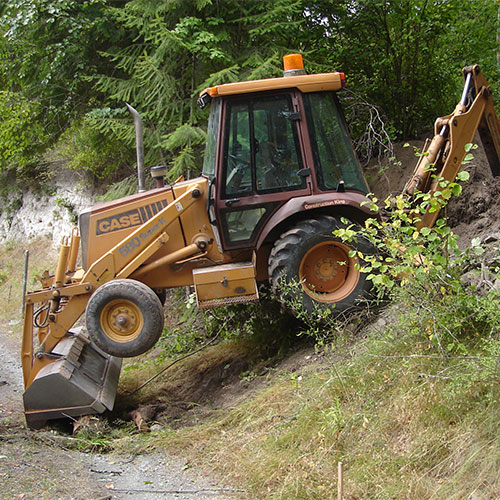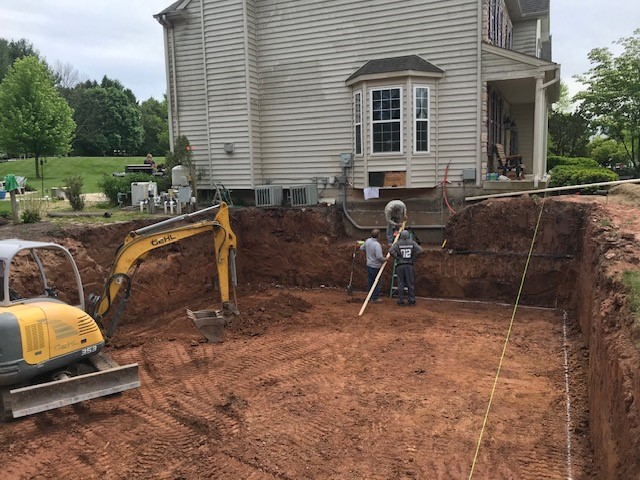Ideal Dump Truck Companies in Ohio - Top-Rated Dump Truck Providers
Ideal Dump Truck Companies in Ohio - Top-Rated Dump Truck Providers
Blog Article
Comprehensive Excavation Approaches: Understanding the Principles for Success
The cautious preparation, precise implementation, and meticulous interest to information required in excavation jobs require an extensive strategy that includes numerous basic aspects. The true proficiency exists not merely in understanding these basics yet in seamlessly integrating them to navigate the intricacies of excavation tasks with skill.
Understanding Excavation Job Planning

The preliminary phase of any excavation task is the planning stage, where essential choices are made that can considerably impact the end result of the job. Understanding the task timeline, budget, and extent restraints is vital for creating a thorough excavation plan that ensures the task's success.
One key facet of excavation job preparation is the advancement of a detailed timeline that details the sequence of milestones, due dates, and activities. This timeline works as a roadmap for the job team, enabling them to track progression and make required changes to ensure the project stays on routine. In addition, a well-defined budget plan that makes up all expenses, including tools rental, labor costs, and materials, is essential for staying clear of cost overruns and delays. By carefully thinking about all these variables during the planning phase, excavation projects can be implemented efficiently and efficiently, causing effective end results.
Soil Analysis and Website Assessment
Performing thorough soil evaluation and site assessment is an important action in the preparation phase of any excavation task. Dirt evaluation involves figuring out the structure, framework, and homes of the soil at the excavation site. This details is critical for comprehending the soil's bearing capacity, dampness content, and potential for disintegration, which are essential factors in determining the excavation approaches and devices needed for the task.
Website assessment goes beyond dirt analysis and encompasses a more comprehensive evaluation of the overall website conditions. This analysis includes determining any prospective hazards, such as below ground utilities, ecological issues, or unpredictable terrain, that can affect the excavation procedure. By completely evaluating the website, project managers can establish efficient excavation approaches that focus on safety and security, effectiveness, and ecological security.
Making use of sophisticated technologies like ground-penetrating radar, soil tasting, and drone studies can enhance the accuracy and performance of soil evaluation and website assessment. Spending time and sources in these preliminary actions can inevitably save time and stop pricey delays or complications throughout the excavation process.
Tools Selection and Usage
Effective excavation projects depend greatly on tactical devices selection and utilization to make sure optimal efficiency and productivity. Choosing the best tools for the job is important in taking full advantage of performance and reducing downtime. Aspects such as the kind of soil, depth of excavation, and job range play a considerable duty in determining the most suitable equipment for the task available.

In addition to selecting websites the appropriate tools, appropriate usage is key to task success. Operators has to be trained to deal with the tools securely and efficiently - septic ohio. Normal maintenance checks and timely fixings aid stop break downs and ensure consistent efficiency throughout the project
Precaution and Regulations Conformity
In the world of excavation jobs, prioritizing safety procedures and compliance with guidelines is critical to guaranteeing a legally audio and protected operational setting. Security measures incorporate a series of practices, consisting of conducting thorough site analyses, executing correct signage and obstacles, and giving sufficient safety and security training for all personnel associated with the excavation procedure. Adherence to policies, such as OSHA needs in the United States, ensures that the excavation job fulfills the essential criteria to safeguard employees, onlookers, and the surrounding environment.

Monitoring Development and Adjusting Methods
Just how can forecast managers successfully track the improvement of excavation tasks and adjust their strategies appropriately to maximize results? Tracking progress is crucial for making sure that excavation projects remain on track and satisfy target dates.

Final Thought
Finally, understanding the fundamentals of detailed excavation techniques is crucial for the success of any job. By understanding task planning, assessing soil and website conditions, picking proper equipment, adhering to safety laws, and keeping track of progression, job supervisors can guarantee a efficient and smooth excavation procedure. Executing these strategies will lead to successful end results and reduce possible risks or obstacles throughout the excavation project.
The first stage of any excavation job is the planning stage, where important decisions are made that can substantially influence the outcome of the job. Understanding the project range, timeline, and spending plan constraints is vital for creating a detailed excavation plan that home guarantees the task's success.
How can project managers efficiently track the innovation of excavation jobs and adapt their techniques appropriately to optimize results? By carefully keeping track of progress and being ready to adapt approaches, job managers can improve the overall success of excavation jobs.
By understanding task planning, examining soil and website conditions, choosing appropriate devices, complying with safety and security policies, and monitoring progression, project supervisors can guarantee a effective and smooth excavation process.
Report this page